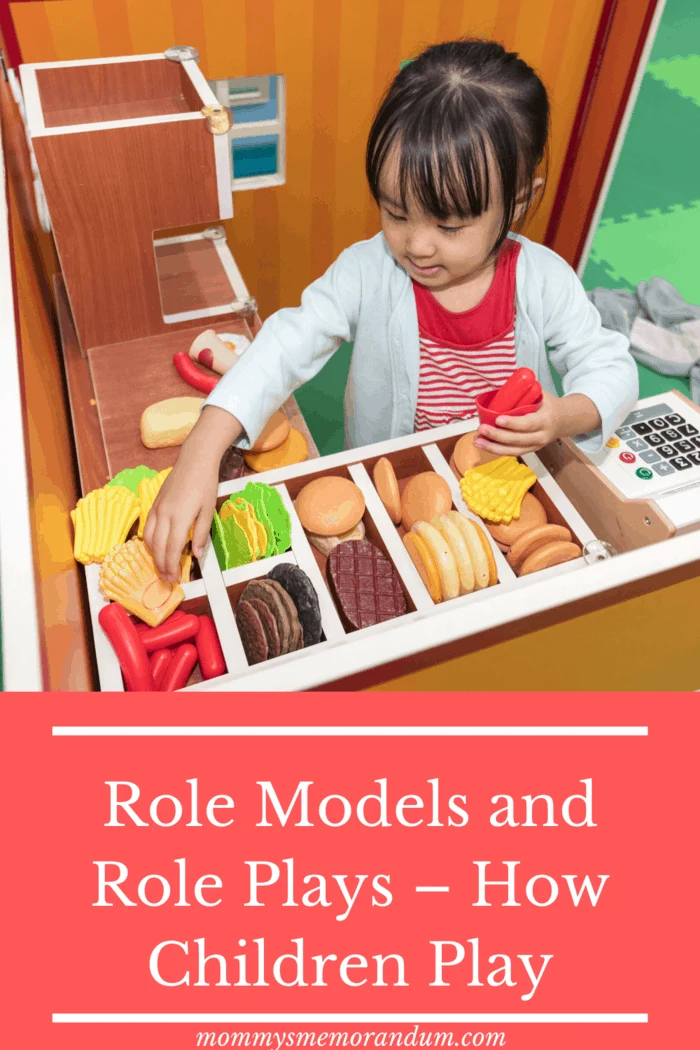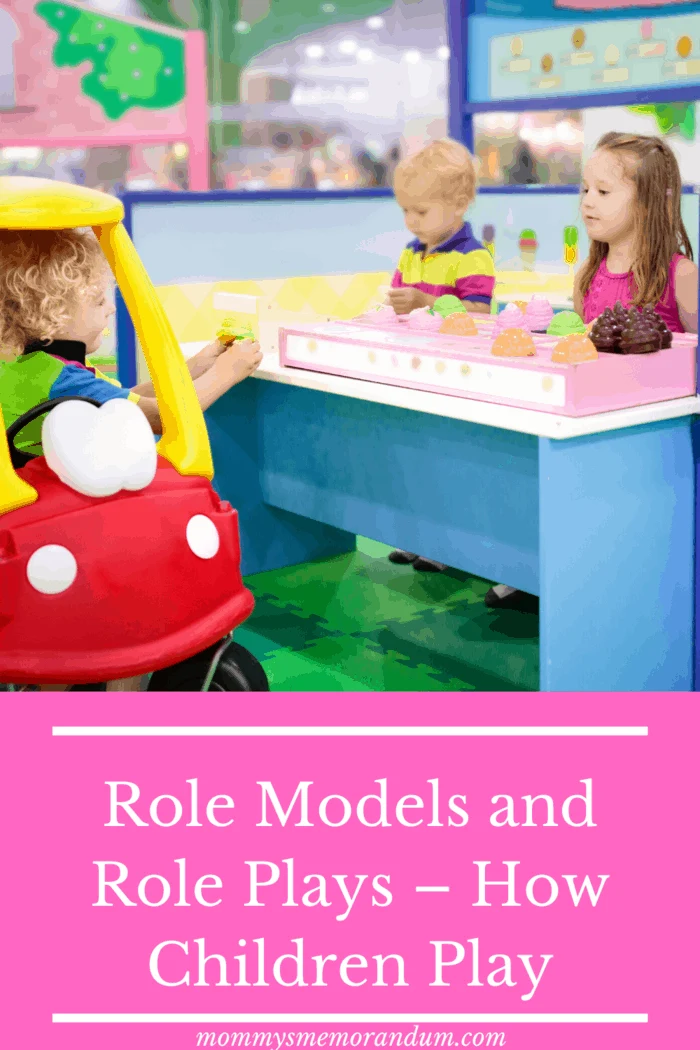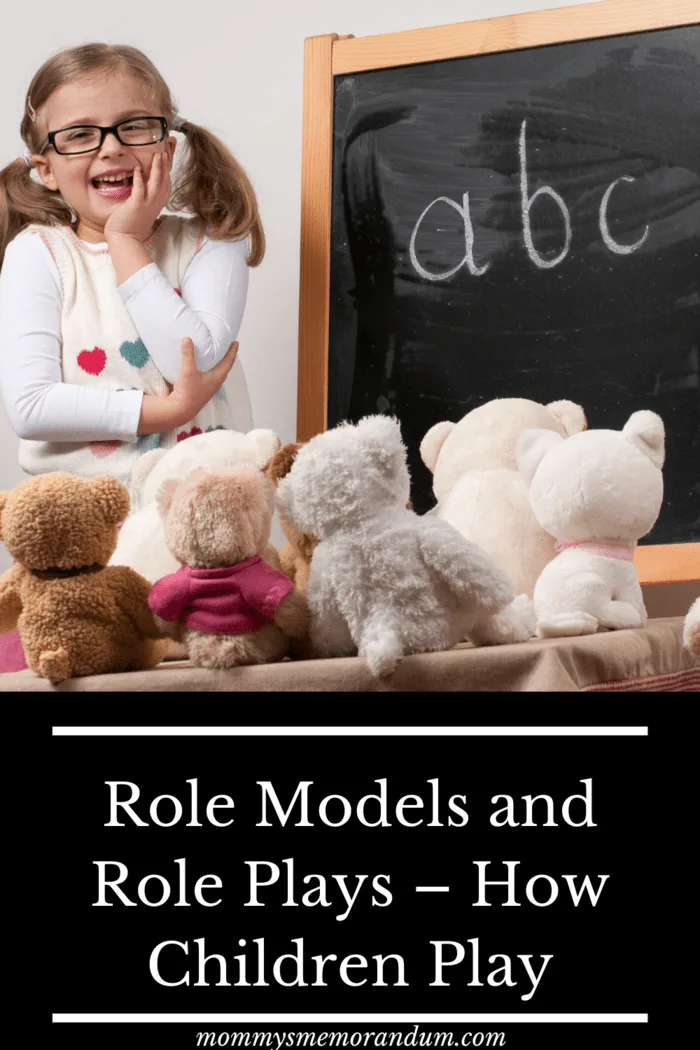Children replay what they experience in their daily life and environment. Infact, how children play helps develop role models and role plays.
The classics are father-mother-child games often played out in children’s kitchens.
In the Kitchen, a mother (daughter) makes breakfast in the morning, feeds the children (the favorite dolls), and the father (son) sits next to her, has breakfast served, and reads the newspaper.
Children begin to playfully imitate their environment at about the age of 4 and imitate the behaviors they learn.
They know best their parents’ behavior and unconsciously take over the distribution of roles.
Children learn best when they play – it is therefore important to provide children with a wide range of toys to try out different variations.
Another of these versatile classics, where children can learn many different, very different skills in a natural role-playing environment, is the children’s grocery store.

How Children Play: Role Models and Role Plays
Versatile environment for role play
The imagination of children is boundless.
They can imagine environments and situations and think themselves into roles that adults can’t even dream of.
The shop is an opportunity to try out many different situations.
According to Psychology Today, with role-plays, children learn to think themselves into other people and to adapt their own behavior accordingly.
This is an important skill that is valuable for the development of empathy in later life.
Children who can imagine themselves into a role well will later be able to think themselves into the situation of other human beings around them and analyze their point of view.
Although the grocery store today does not look like the shopping environment in real life – where are there still corner shops instead of supermarkets? – children are able of the cognitive transfer thoughts and think of themselves in the role of customer and retailer.
Here they can recreate the social dynamics that arise during shopping and change them as required.
In this way, food retailers quickly turn into pharmacies and the customer into the patient.
Already the role play changes, and the child in the role of the pharmacist or chemist takes on a role in which empathy is even more important.

Learning basic calculation methods
In essence, the merchant’s shop, over and above the social role that a shop also plays in the “real” adult world, is not only about exchanging goods and money.
A suitably equipped merchant’s shop supports the child’s imagination in getting to know this world.
A small hand scanner made of wood and a stylized plastic packaging symbolizes the exchange of goods.
Then, at the age of six, the child suddenly has to slip into the role of cashier and apply the basic arithmetic just learned at school.
How much was 1 + 2 again?
Meanwhile, the children learn the playful handling of money in the role of customers.
Which and how many products can they afford from their play money?
What do they want to spend the money on?
These and even more fundamental questions must be answered in a merchant’s shop while playing.
Children can try different ways of doing things in a shop, and even school-weary children can learn basic arithmetic without even realizing it.

Role models in a merchant’s shop
A little earlier than the discovery of role-playing games, children aged two to three years noticed that people have different genders and assign themselves to one.
In an environment like a grocery store or Kitchen, children can try out different gender roles.
Who goes shopping?
Father or mother?
Who is behind the cash register?
A man of a woman?
What is the work of a salesperson?
What is it like for a supermarket employee to advise a customer?
Here children can try out and slip into the different roles.
Even if children are used to shopping with their mother, sons can learn that choosing what is bought and cooked is much more helpful.
Most children first act very clichéd, at least in the eyes of adults.
This is because boys imitate older ones and like to slip into roles like cowboys or knights, while girls suddenly develop a weakness for pink and princesses.
What sounds stereotypical to adults makes the differences particularly visible to children and helps them find their own identity.
Therefore, it is not at all worth considering if one’s own child initially displays a stereotypical understanding of roles.
After all, people are continually developing, and at no age do people develop faster than in early childhood.
Just because the daughter suddenly appears only as a damsel of the castle and the son wants to learn all the makes of a car by heart does not mean that the child will develop into an unemancipated cricket or a misogynist macho.
It’s simply their observations and how children play.

Living out role models permanently
Children will, over time, break away from these stereotypes as they develop and understand their own identity better.
For this purpose, however, parents need to exemplify the role models to their children that they want to realize.
If parents do not want their children to live traditional role models in their lives, they should show them daily that the mother does not have to organize the household alone and that no father has to spend more time at work than with his children.
Of course, children experience traditional norms, not only at home.
They run through the entire society.
However, large parts of the children’s environment can influence parents to a certain extent, especially before starting school.
Parents can choose the kindergarten in such a way that education takes place according to their own wishes.
But the most formative time for children is the early years of life, and this is where parents usually have the most influence on the development of their children.
The aim should not be to teach the children values like in school.
The goal of a conscious education is to be a role model for children in all situations in life.
This applies to role models as much as to anything else.
Daughters can learn not to do the household alone when their brother has to take over the same tasks.
Sons can learn that they don’t have to become stoic sole caretakers when fathers take time for the children.
And in any case, parents’ personal problems should be discussed openly, also in front of the children, to give them an open and healthy culture of conversation.
Role models and role play have a great impact on how children play.
Children playfully imitate their environment in their play.
Be an example to your child, let them explore the world around them, and watch how children play to see the world through their eyes.

